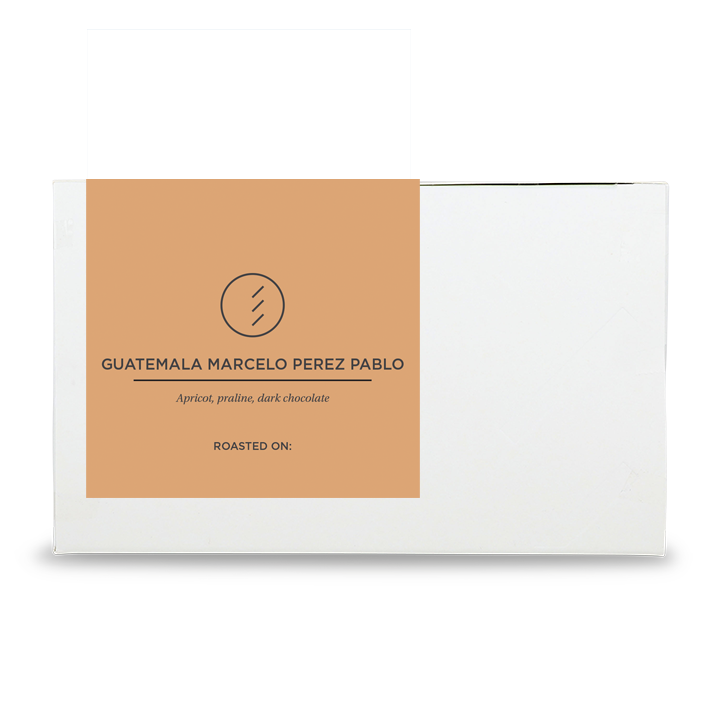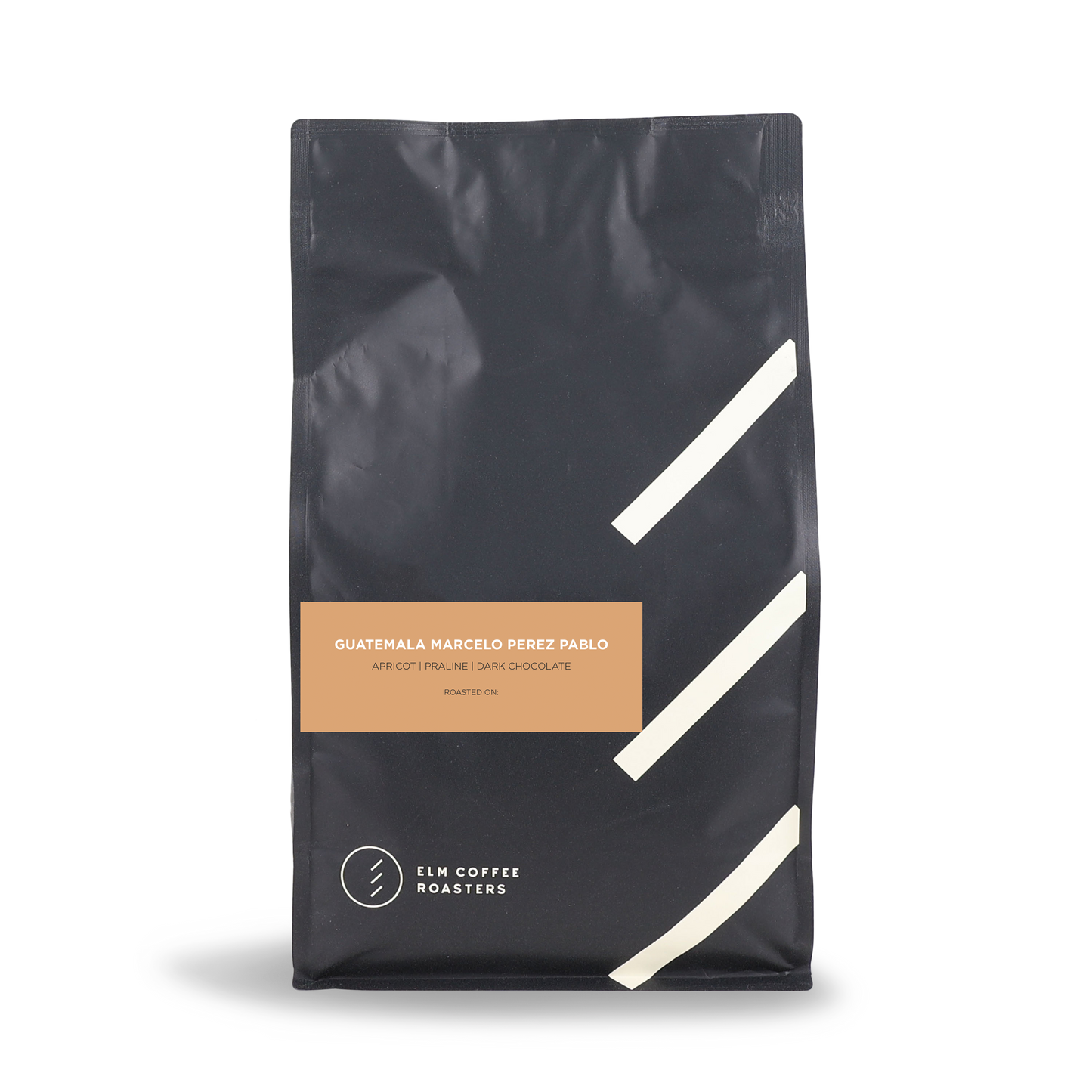Guatemala Marcelo Perez Pablo
Guatemala Marcelo Perez Pablo
Marcelo Perez Pablo’s coffee is another beautiful crop from Huehuetenango, with stonefruit acidity, with deep dried fruit, nut and chocolate undertones that make it a deeply nourishing cup in colder weather, pairing wonderfully with breads and pastries. His small plot at 1700 meters above sea level grows Caturra, Catuai, and Bourbon varietals that are harvested and processed at his cooperative’s wet mill. His daughter is a member of the cooperative’s young producer’s group, who are all highly motivated to improve coffee quality and sustainability, seeing how specialty coffee has improved their families’ lots in life.
Marcelo is a longtime member of the ASDEFLOR Association, located in the township of Chanjón, in the Todos Santos Cuchumatán municipality in the department of Huehuetenango. ASDEFLOR is the Asociación de Desarrollo Flor del Café (Coffee Flower Development Association), and it is a tiny collective of just 30 members, all of whom belong to the Mam Mayan indigenous community. Mam is still the language used, Spanish being a second-language used only when speaking to mestizos. The Association owns a communal wet-mill where most members process their coffee. Fermentations are long and cold, between two and three days, and producers cover the tanks in thick plastic to ensure a homogenous and clean fermentation. At around 1700 masl, parchment is dried partially on raised beds and finished on patios at the wet-mill site.


About This Coffee



